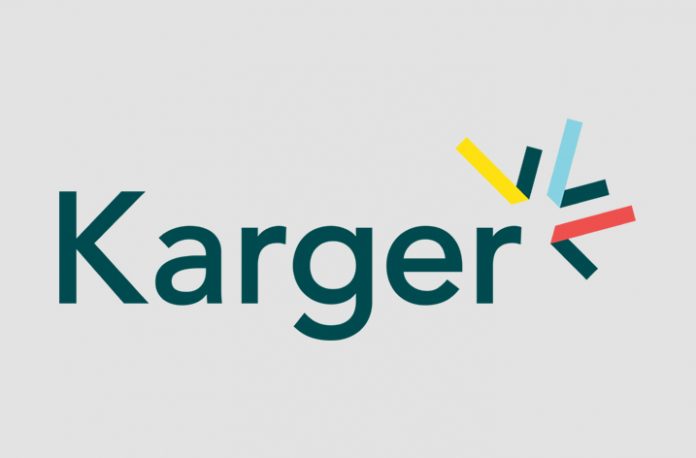
Karger Publishers is accelerating the transition to Open Access (OA) with seven more OA journals, transformative OA agreements and additional “Open” actions.
Karger Publishers has again substantially increased the proportion of the Open Access content it publishes, continuing to drive forward the OA transition and demonstrating its proactive “open for Open” strategy.
The Switzerland-based company has flipped (converted) six subscription journals to the Gold OA model and founded a new OA journal, making more health sciences articles freely available worldwide, supporting the OA needs of research institutions and empowering researchers to have an even greater impact with their work as well as to fulfil their OA mandates.
The newly OA journals are: Intervirology, Ophthalmic Research, Cardiorenal Medicine, Microbial Physiology (formerly Journal of Molecular Microbiology and Biotechnology),Public Health Genomics and Transfusion Medicine and Hemotherapy. In addition, Karger has launched a new OA journal, Glomerular Diseases. Karger will be publishing 36 fully OA titles out of the total of 106 journals in the 2021 publishing year – one third of the portfolio. Flipping and launching OA journals is an important step in Karger’s commitment to propelling forward Open Access and Open Science, an approach to science that emphasizes innovative and collaborative practices.
Karger also continues to work closely with consortia and institutions around the world on innovative, flexible ‘Publish and Access’ transformative agreements that cover researchers’ costs and enable easy Gold OA article publishing. Supporting institutions and national consortia in their own transitions is essential to creating a global OA market that is viable and sustainable for all. The expanding Partner Publications by Karger Platinum OA journals also help various organizations that underwrite health sciences research to achieve their OA goals.
Alongside these efforts, Karger continues to enhance its policies and services to enable the most effective transfer of knowledge. Some recent moves include adopting a more open standard license for OA articles, Creative Commons Attribution – Non Commercial (CC BY-NC), which permits the re-use of content for all non-commercial purposes, provided the article is attributed to the author and publisher. Importantly, Karger publishes articles with the Creative Commons Attribution (CC BY) license when needed so authors can comply with funder and institutional OA mandates. In addition, Karger has partnered with the MedRxiv preprint server, abolished all charges for supplementary material and is investing more resources into adopting Open Science solutions.
“Karger aims to connect and advance health sciences,” says Daniel Ebneter, CEO at Karger Publishers. “That’s why we are dedicated to a sustainable transition to OA. We are collaborating with our partners and expanding our services to build on the power of Open Access and Open Science to maximize effective, efficient, and open scholarly communications.”
Gold OA journals are permanently free for everyone to read and share online upon publication, with no paywall. Costs associated with publishing are often covered by Article Processing Charges (APC), fees levied per article and paid by the author or a funder or research institution. Alternatively, OA publishing costs are sometimes covered by an organization such as a research institution or government body, with no APCs being levied – known as Platinum OA – as is the case with most Partner Publications by Karger OA journals. Karger additionally facilitates Green OA (whereby papers are archived and made free to read in a repository) with generous policies and assistance for authors and their institutions or funders.





















